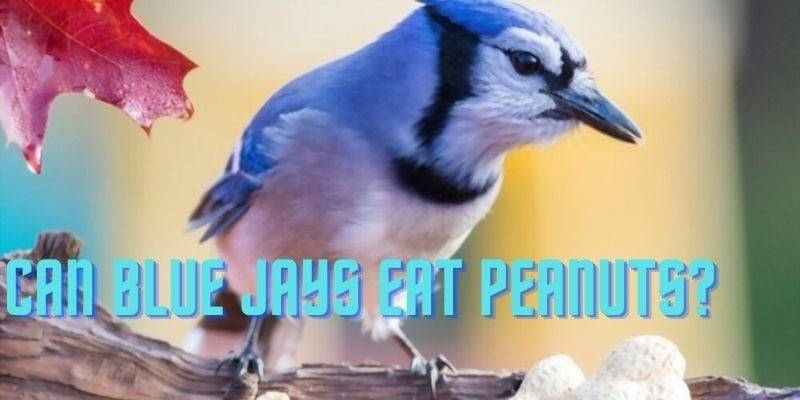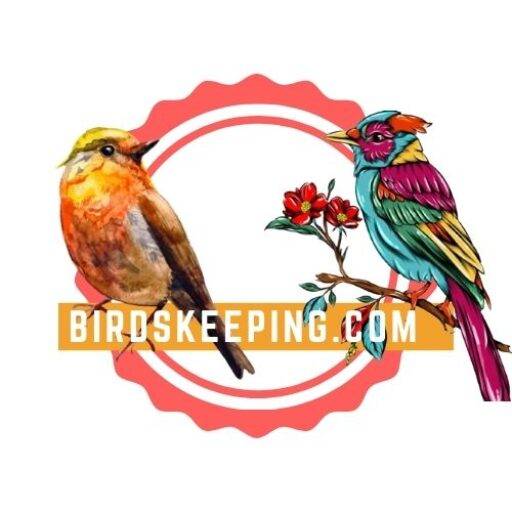Humans widely love peanuts for eating. Birdwatchers and people who love to share their food with birds have asked an interesting query, can blue jays eat peanuts?
I want to assure those people who have asked this question online on many forums and social media platforms that blue jays can eat peanuts. They will enjoy eating peanuts without any hesitation. Let’s find out how you can properly feed peanuts.
Table of Contents:
- Are Peanuts Safe For Blue Jays?
- Do Blue Jays Like Peanuts?
- How To Serve Peanuts To Blue Jays?
- What Kind Of Peanuts Do Blue Jays Eat?
- Can Blue Jays Eat Raw Peanuts?
- Can Blue Jays Eat Peanuts In The Shell?
- Last Thoughts
Are Peanuts Safe For Blue Jays?
Yes, peanuts are entirely safe for blue jays as the peanuts contain 45 percent of fats, and 24 percent of proteins, and the rest are some other essential nutrients and natural oils.

Peanuts are full of essential macronutrients for blue jays. In winter, peanuts have many calories, proteins, and energy to blue jays that help them keep themselves strong.
It is due to the presence of fats in peanuts. They are an excellent source of food for blue jays. Both unsalted and unsweetened peanuts are safe for blue jays. So, do not hesitate while feeding peanuts to your blue jays.
What do blue jays eat? Best Foods, Feeding & Diet
Do Blue Jays Like Peanuts?
Peanuts are liked by many birds like blue jays, chickadees, woodpeckers, titmice, and nuthatches. They easily get attracted to peanuts, even to the peanuts in the shell, a whole peanut, the pieces of peanuts, or the roasted ones with no sugar and no salt.
You can feed any of these three peanuts. All of them are very healthy for your blue jays. Before buying any peanuts from the market, make sure you have checked the peanut’s freshness and oil content. Can birds eat almonds?
How To Serve Peanuts To Blue Jays?
There are various methods you can use to serve peanuts to blue jays. The simplest one is scattering small-sized peanuts on the bird table or the ground evenly in your backyard.
Never place whole peanuts on the ground or the bird table because their size can cause choking in birds. Any food in small pieces attracts birds easily.
Whenever birds fly over your backyard, the peanuts scattered in your backyard will attract them, especially those birds who feed on the ground. They will come down and will start eating them.
But this method is very messy. To avoid this, you can use feeders of any type. The most used feeder is the platform or tray feeder, and these are the type of open feeders.
You can put peanuts on them to feed your birds. It is also best for feeding those birds that are larger.
If you are planning to feed whole peanuts to your birds, it is better to use a wire mesh feeder. This feeder is very helpful because birds can take small pieces of peanuts.
Birds cannot eat a whole peanut because of its immense size, and they can have choked. If breeding birds feed on the peanuts in a wire mesh feeder, they can also give those peanuts to their baby chicks as feed because they are small.
Never fill the feeder until a lot of birds come to eat them. Because if birds do not eat peanuts, then they will become moldy. You have to waste them because they are not suitable for birds. It happens only in wet and warm weather.
You can also hang peanuts on a string or a thread and hang that thread around the garden on trees. The other method to use is placing whole peanuts in branches, logs, or holes in the tree.
Different birds like nuthatches and woodpeckers will come there to eat them. You can also serve peanuts (crushed in small sizes) to your birds by adding them to the suet cake. It will be a good source of food for them, especially in the winter season.
What Kind Of Peanuts Do Blue Jays Eat?
You can give the peanuts in the shell, the roasted peanuts, and a whole peanut to blue jays, but feeding dry-roasted, salted, or any other flavored peanuts can be harmful to the birds.
A few birds can digest a small quantity of salt, but a large amount of salt can cause stomach problems and even death. Peanuts should always be stored and transported in a dry and cool environment.
In a humid and hot climate, a natural fungus can occur, known by the name of Aspergillus, and it releases a highly poisonous carcinogen, known as aflatoxin. It is highly dangerous for both birds and humans.
So, try using fresh peanuts, dry them in front of your eyes in your home or get them from a well-known store in the market before buying. Do not forget to check them completely. What do baby blue jays eat?
Can Blue Jays Eat Raw Peanuts?
Yes, blue jays can eat raw peanuts, and they are not entirely safe for them too. Like other types of peanuts, raw peanuts also has some health benefits for blue jays.
Can Baby Blue Jays Eat Worms?
It is good to boil raw peanuts before serving blue jays, so it will not affect the enzyme production used to absorb protein. So, yeah, you can feed your blue jay, and boiled raw peanuts, but not in large quantities.
Can Blue Jays Eat Peanuts In The Shell?
Yes, like other birds, blue jays can also eat peanuts in the shell. Blue jays love eating the peanuts in the shell. These peanuts are rich in fat and protein, which is very good for the health of blue jays.
Make sure to serve in small pieces, not as a whole for blue jays or other birds, because they are hard to open for many birds.
Last Thoughts
Blue jays are very different in terms of their diet as compared to other common birds. However, most birds love to eat peanuts, and many people asked whether blue jays can eat peanuts.
Blue jays like to have peanuts in shells as their food, and they get easily attracted to peanuts in shells for eating. Whenever you want to give peanuts to blue jays, try giving these peanuts and keep in mind other important things discussed above.
Birdskeeping is supported by its readers. When you purchase through links on our site, we may earn an affiliate commission. Also, as an Amazon affiliate, we earn from qualifying purchases without costing you extra.
